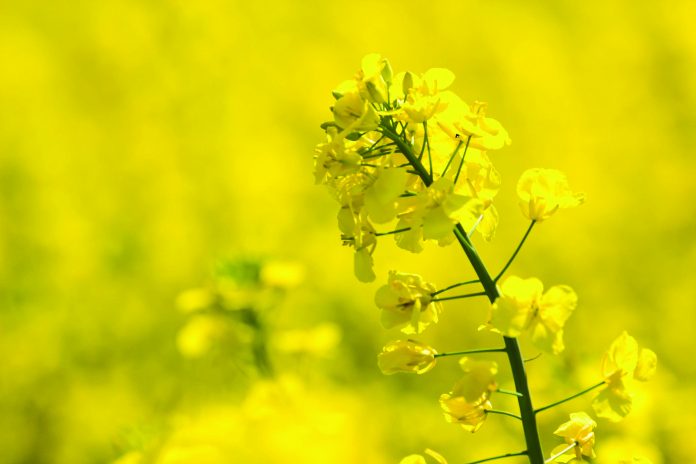The federal government has received mixed responses after Wednesday’s announcement of additional support for farmers impacted by an ongoing trade dispute with China.
China has blocked all canola seed exports from Canada over concerns surrounding contaminants. The Canadian Food Inspection Agency and the Canadian government deny that there is anything wrong with the seed exported to China.
After weeks of pressure and calls for support, Agriculture Minister Marie-Claude Bibeau announced new relief measures in Ottawa Wednesday. The federal government will increase the maximum loan limit to $1 million for the Advanced Payment Program and will increase the interest-free portion for canola producers from $100,000 to $500,000.
“These measures will give canola producers the support they need to manage their cash flow,” Bibeau said during a news conference Wednesday morning.
“It will give them the ability to sell canola at the best time at the best price.”
She said the federal government will also work with its provincial partners to extend the AgriStability program by two months.
“Both … are important tools to help farmers during challenging times,” Bibeau said.
“We stand shoulder-to-shoulder with Canada’s canola producers and farm families across the country.”
Bibeau added that the federal government is prepared to support producers of other crops should the need arise. Officials have not confirmed reports that other products are also facing inspection delays at the Chinese border.
International Trade Minister Jim Carr also spoke Wednesday, stressing the government’s commitment to expanding market access for Canadian canola farmers. Carr said he will leave on a trade mission to Japan and South Korean in June and will promote Canadian canola with other nations he is set to meet with over the coming months. Those discussions include the United Arab Emirates, Thailand, Malaysia, Pakistan, Bangladesh, Mexico, Germany and France.
He denied criticism that Canada hasn’t been doing enough to diversify trading markets for producers.
“The timeline is continuous,” he said. “It didn’t start today and it doesn’t’ end tomorrow. The Canadian government stands with farming families, farming communities and industry. Our government is taking action at home and abroad. We will not rest until this issue is resolved.”
Despite calls from Saskatchewan Premier Scott Moe for scrutiny of Chinese products and urging from the opposition Conservatives to pull funding from the Asian Infrastructure Investment Bank and to launch a complaint with the World Trade Organization, the Liberal government is remaining firm in its commitment to seeking a technical delegation to discuss the issue with China.
The ministers also rejected calls for a political delegation to pressure the Chinese government.
“There is agreement that we should engage with China,” Carr said.
‘We continue to seek engagement We are engaging, the minister and her staff are engaging. This is not the first time we’ve had an issue Chinese canola. We were able to work through it. We have some experience having a science-to-science conversation.”
China has expressed concerns with Canadian canola in 2016 and in 2009. Both times, a science-based conversation played a role in resolving the dispute.
Carr acknowledged that while bringing a complaint to the WTO is an option, he doesn’t believe it is the right option.
“In our judgement, at this time the best engagement is at the scientific level,” he said.
Work is being done through embassy staff, and through letter-writing, Carr said.
Bibeau said that while the technical delegation is still waiting for permission to visit China, a scientific discussion is happening through video conferencing.
“The conversation is ongoing,” she said.
The Saskatchewan Association of Rural Municipalities called the announcement a “step in the right direction,” but said that more had to be done.
“It still does not address the problem with China,” said SARM president Ray orb in a press release.
“We are frustrated and will continue to push for a diplomatic resolution to the problem. Canada needs an ambassador to China and Ministers Bibeau, Carr and Freeland also need to be more involved.”
He stressed that dollars borrowed through the Advanced Payment Program are a loan and serve only as a temporary solution.
The Western Canadian Wheat Growers were less pleased.
“The China decision to block canola has had a major impact on grain farmers with no end in sight. Farmers don’t want tax dollars in the form of interest-free loans, we want to be able to grow our grains and export them without political interference,” said president Gunter Jochum in a press release.
The organization added that farmers are “used to managing risk associated with factors that are outside of their control” and said the program may help short-term cash flow, but that the issue needs a political solution.
The federal government’s support plan was similar to what had been proposed by Saskatchewan Premier Scott Moe. He commended the federal government on Wednesday for having “come to the plate in supporting our canola farmers,” on the day when Ottawa announced changes that largely matched Saskatchewan’s proposal for granting easier credit to producers.
“The federal government has shown that they do support western Canadian agriculture,” said Moe. “We are appreciative that they’ve moved forward with this plan. It supports our producers as they hit the fields here this spring.
“Today’s announcement does buy us some breathing space,” he explained.
Keith Fournier, a farmer who grows canola on 700 of his 2,000 acres south of Lloydminster, said he will make use of the increased interest-free ceiling provided through the APP.
“We’re pretty excited about this coming,” said Fournier, who is a director of SaskCanola but was speaking on a personal basis. “It’s not a solution, but it’s a Band-Aid to help with cash flow in the short term.”
He said many Saskatchewan farmers still have canola in the bin from last year and will benefit from the changes.
— with files from Arthur White-Crummey, Regina Leader-Post


